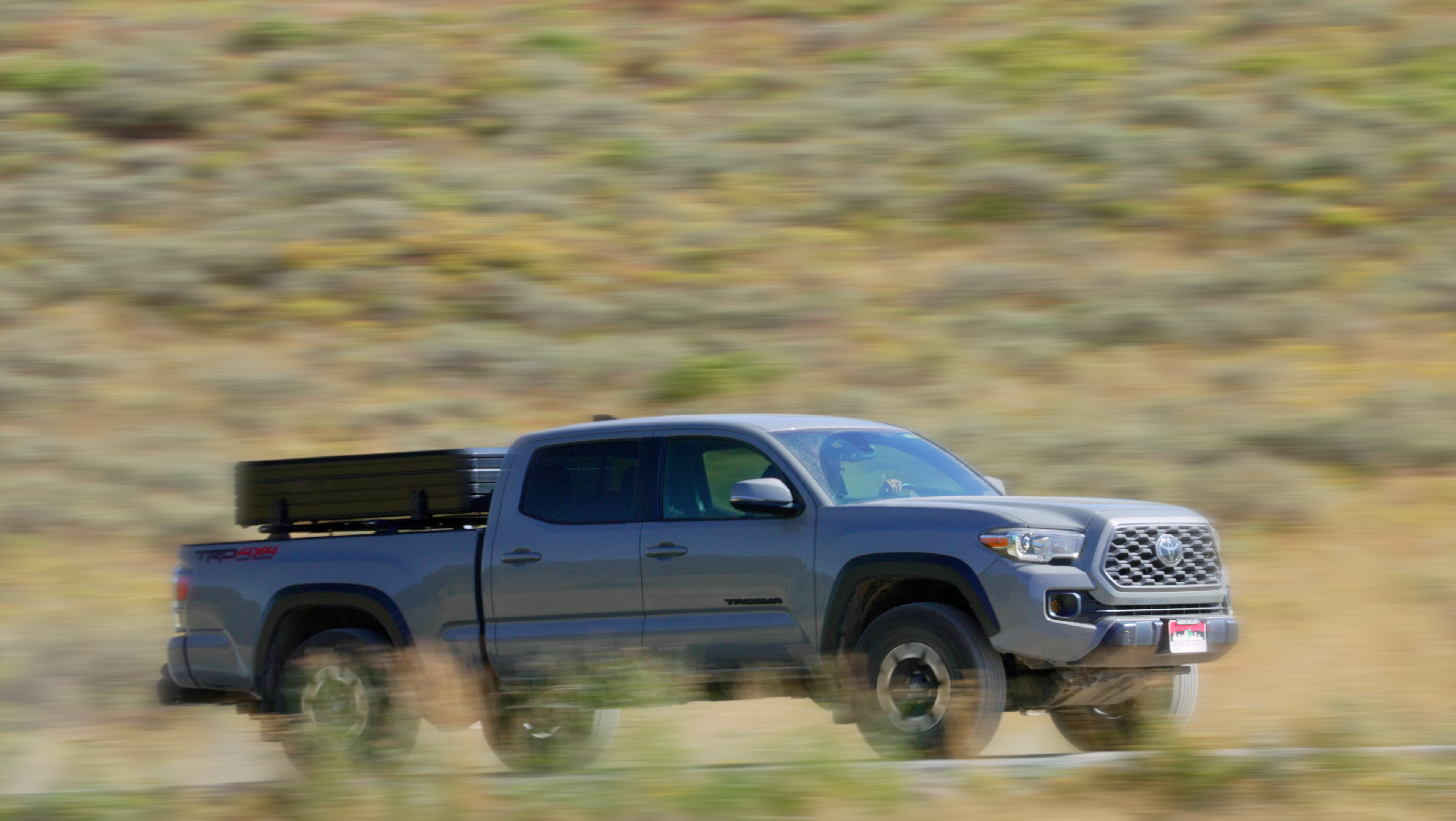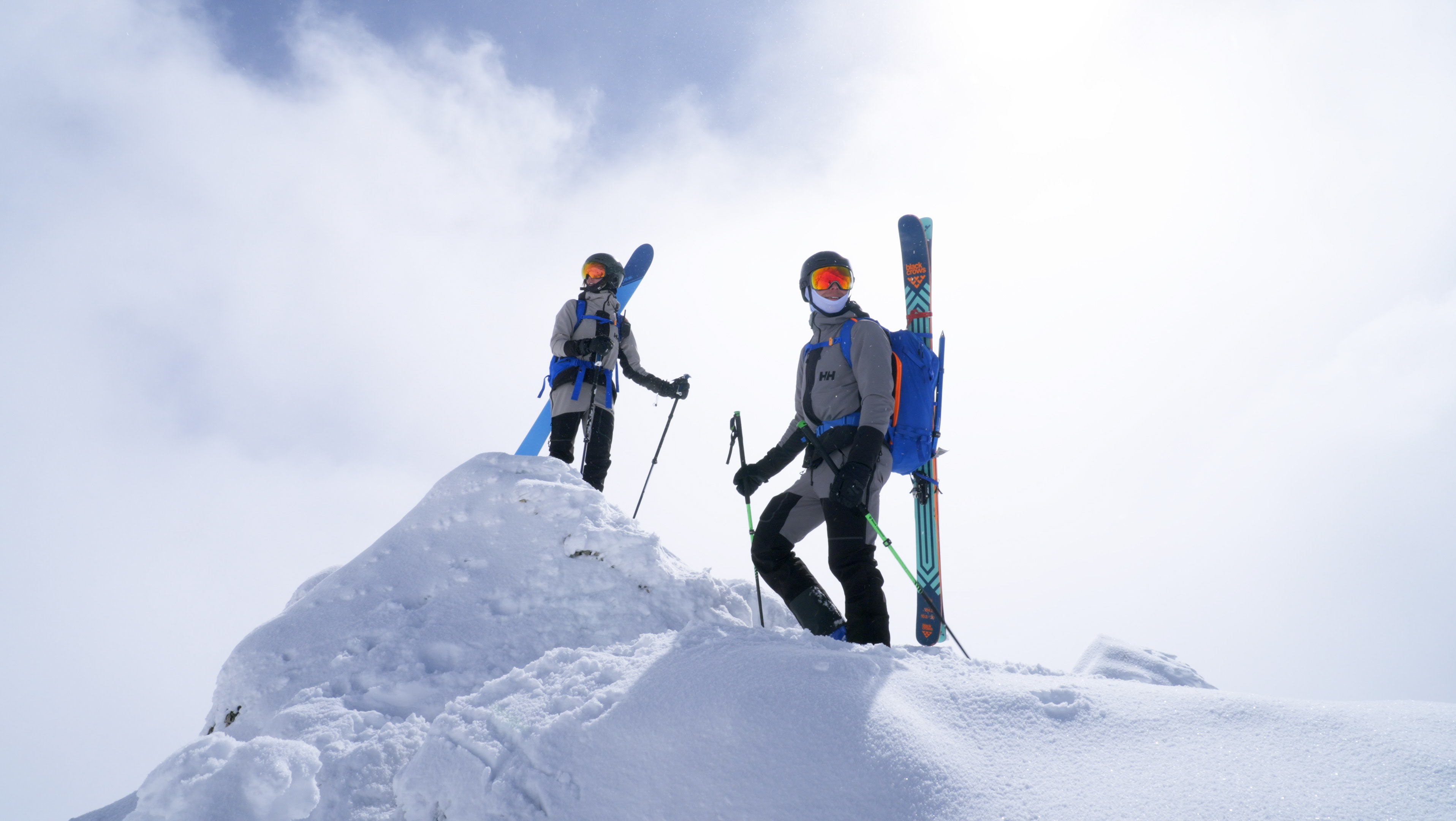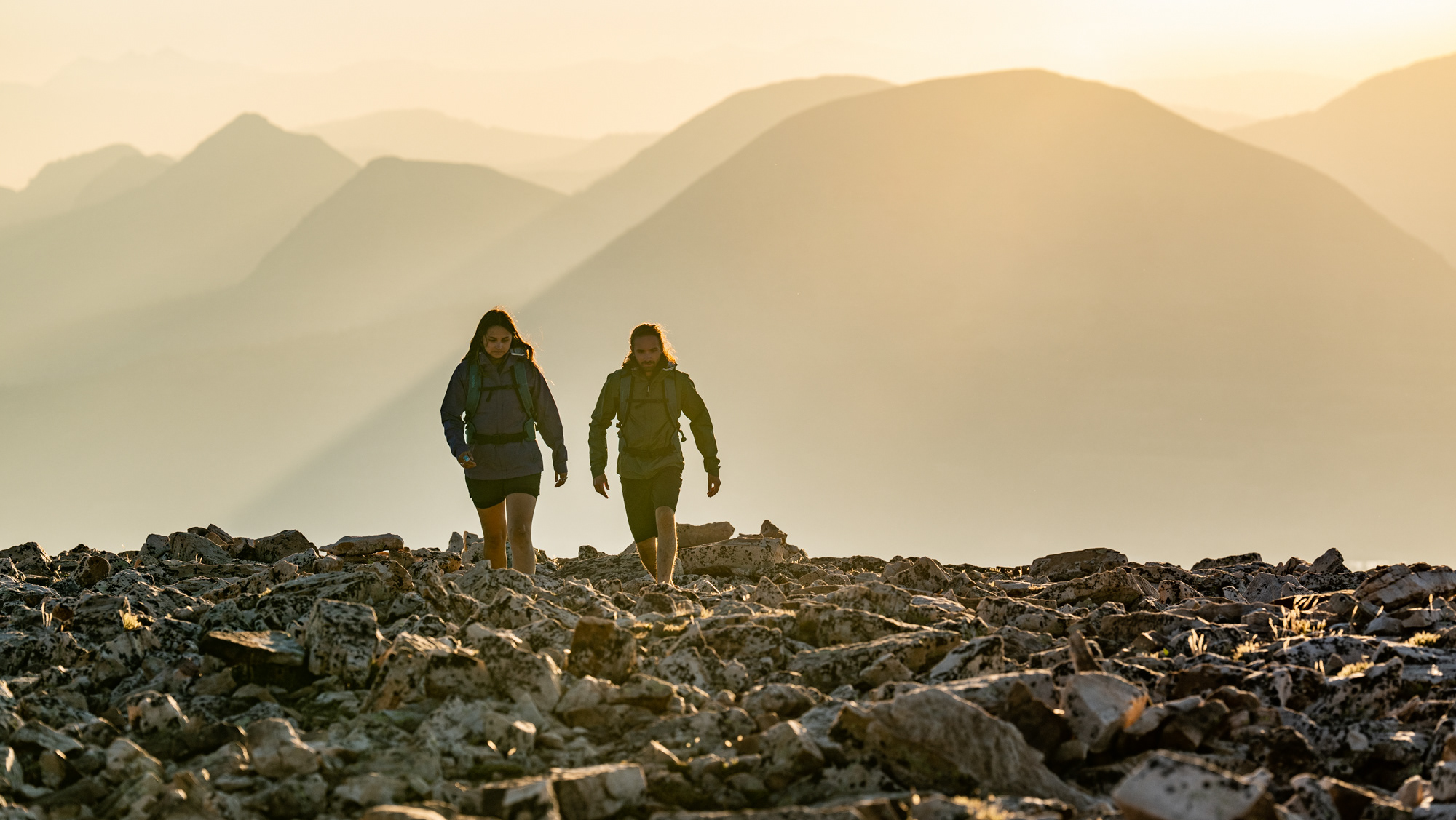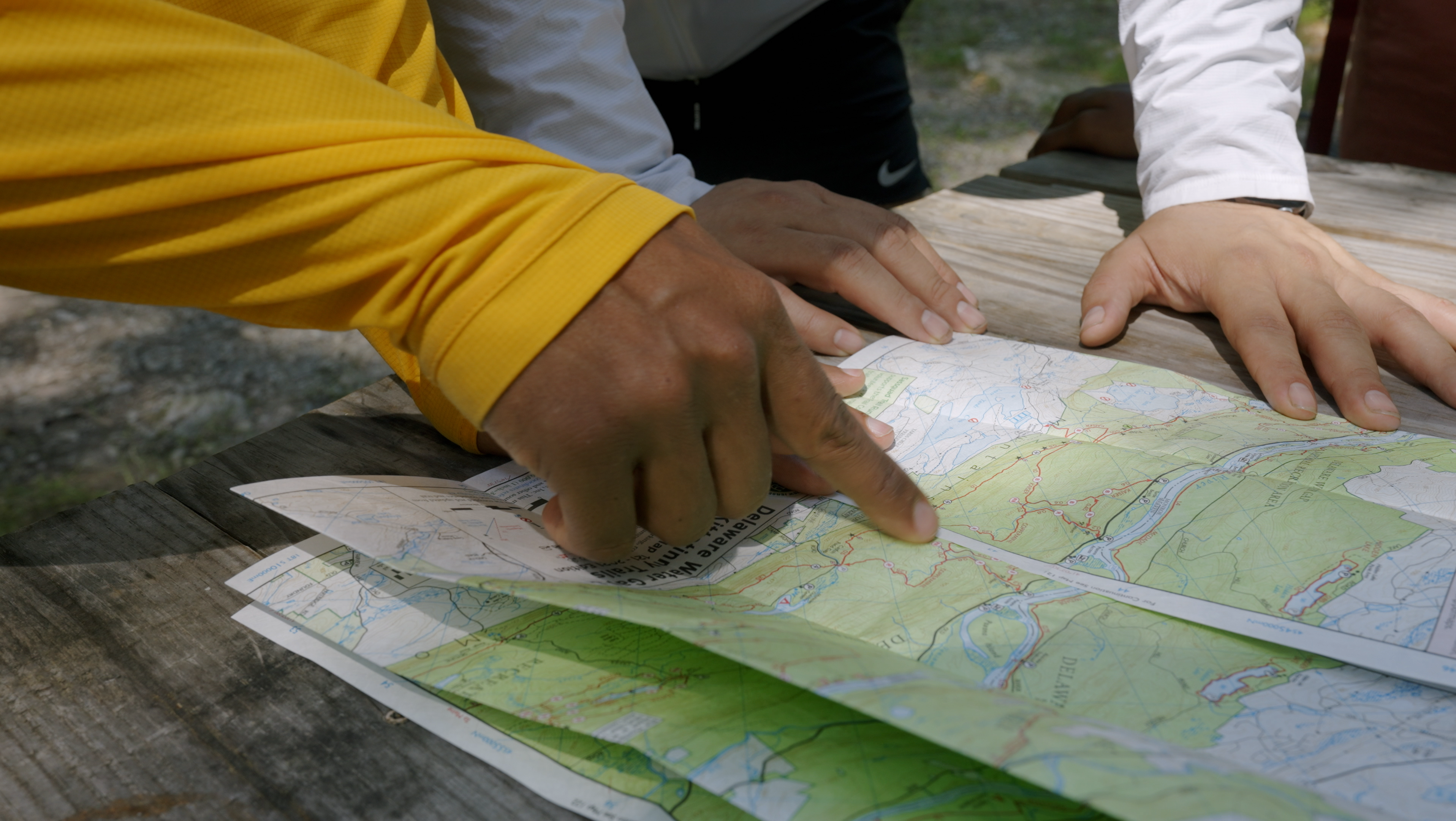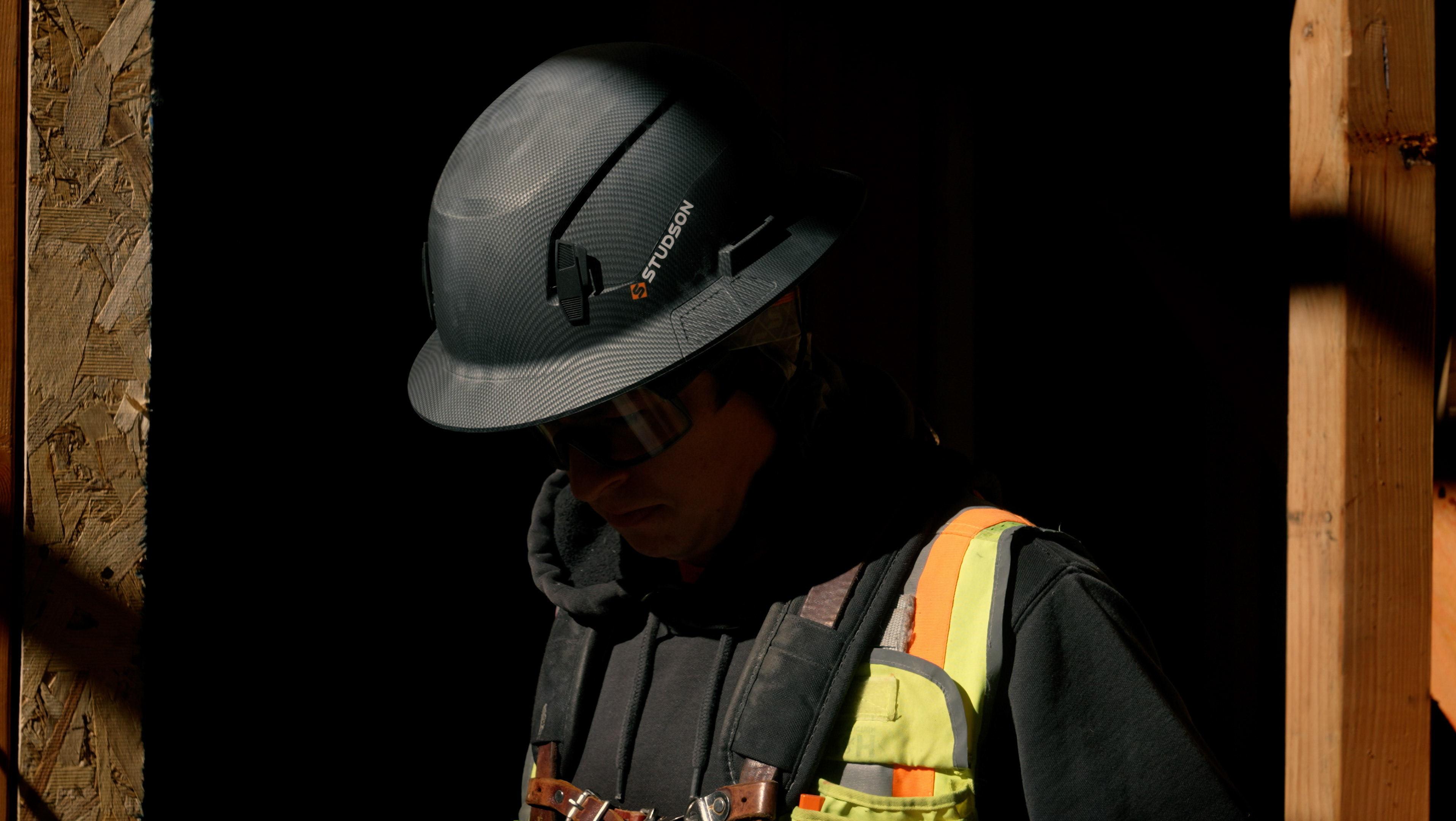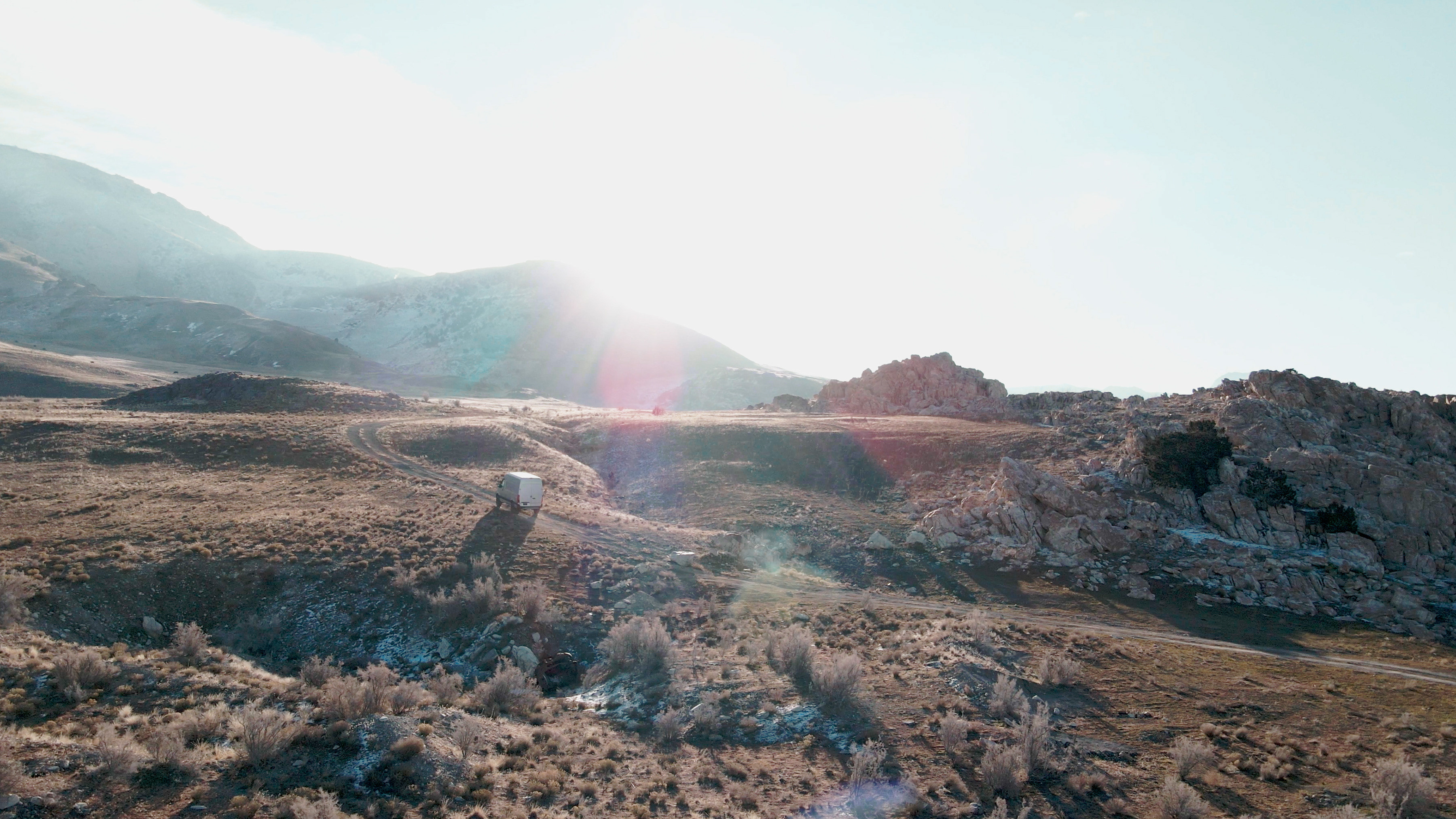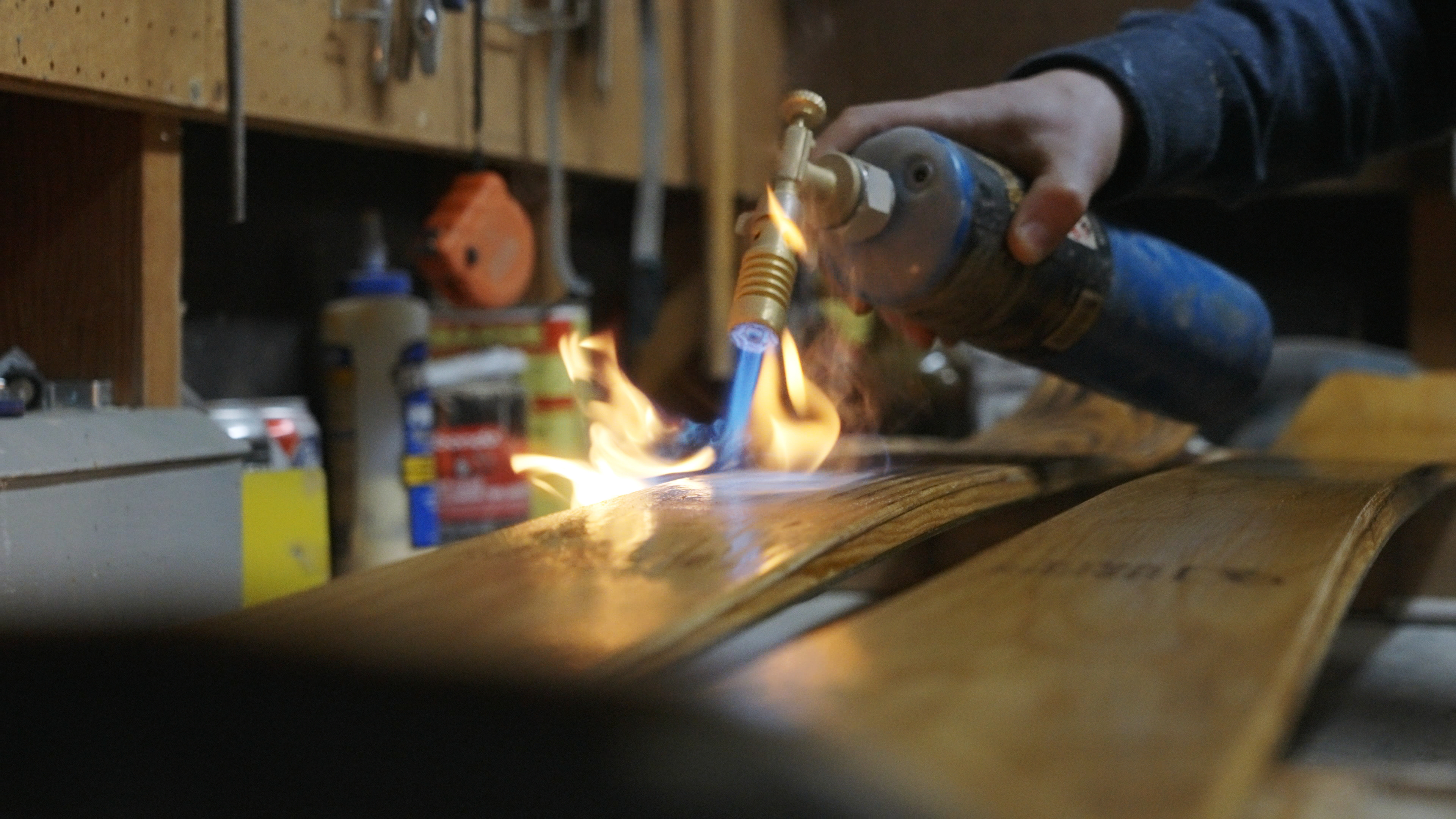
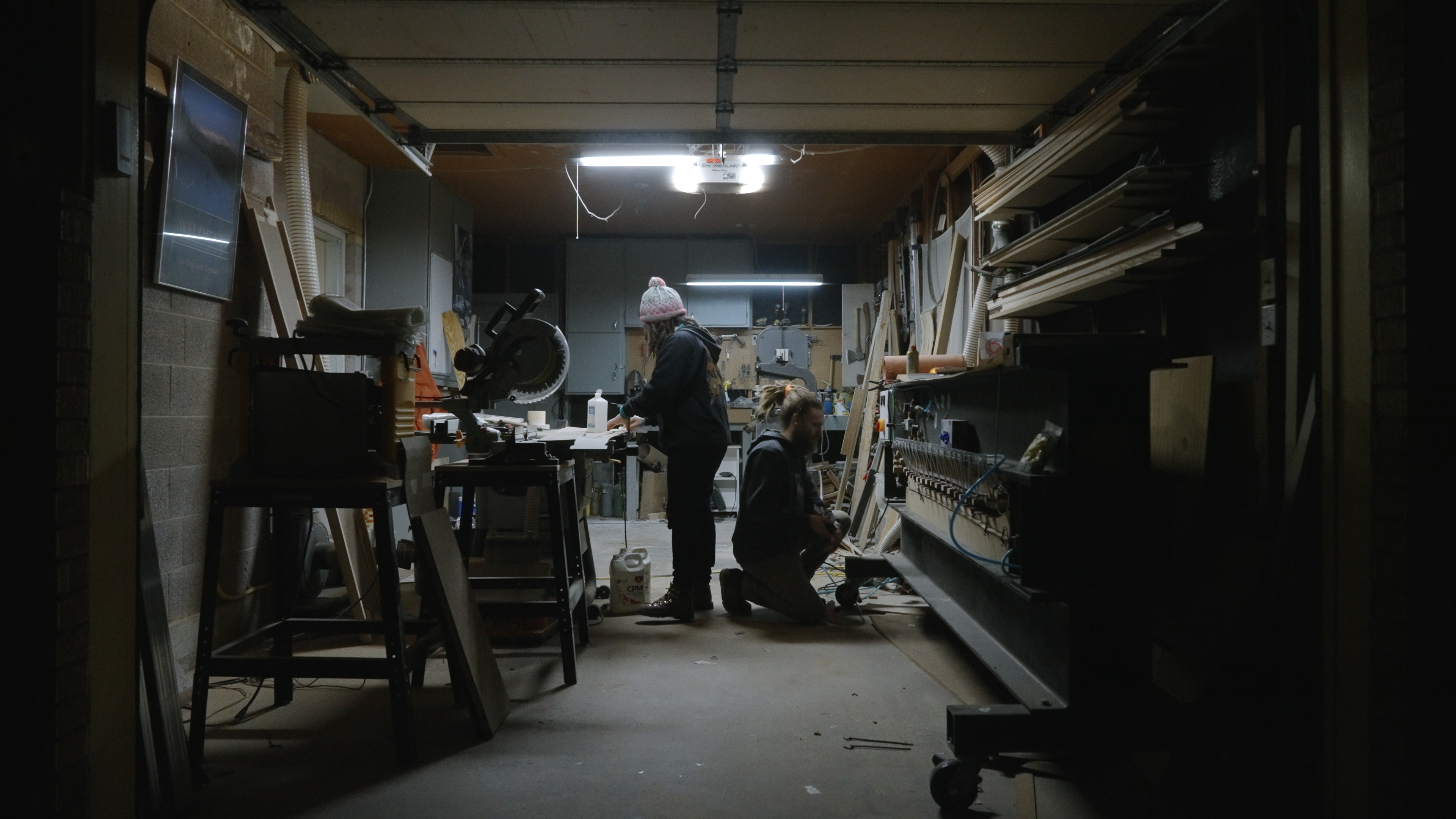
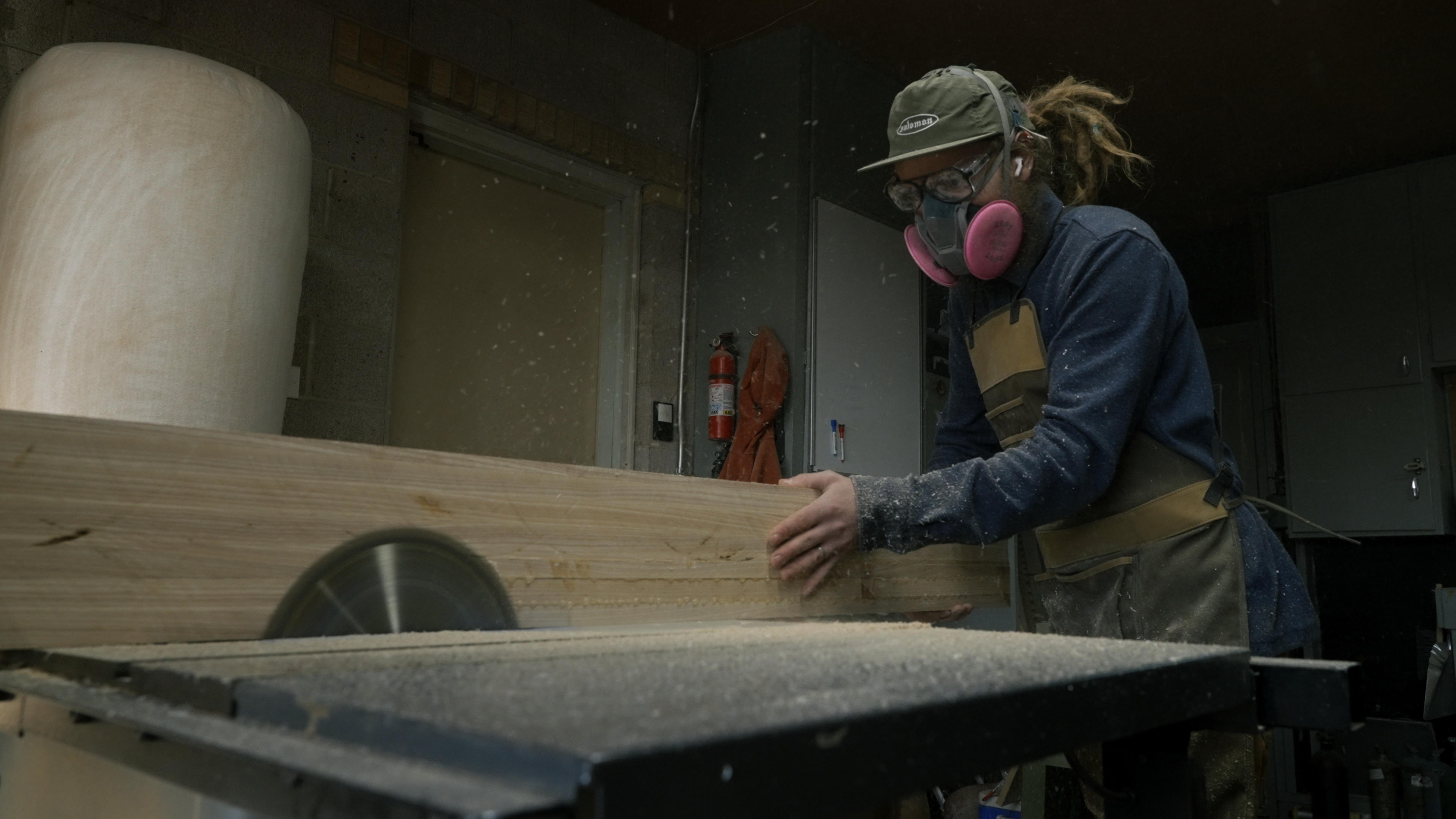
cinematography | Photography: Dylan Totaro
Written Word: AJ Turner
Producer: Kristen Law
There are certain types of people who are truly artisans - in every sense of the word. There are tons of idea-people, but those who actually execute on their ideas are unique in their own right. It’s rare to find these artists today, and when we do find them, we’re often so transfixed with the final product they created that we rarely see their techniques and all of the toiling it took on their behalf to create the finished product.
Caleb and Liz are just those types of people.
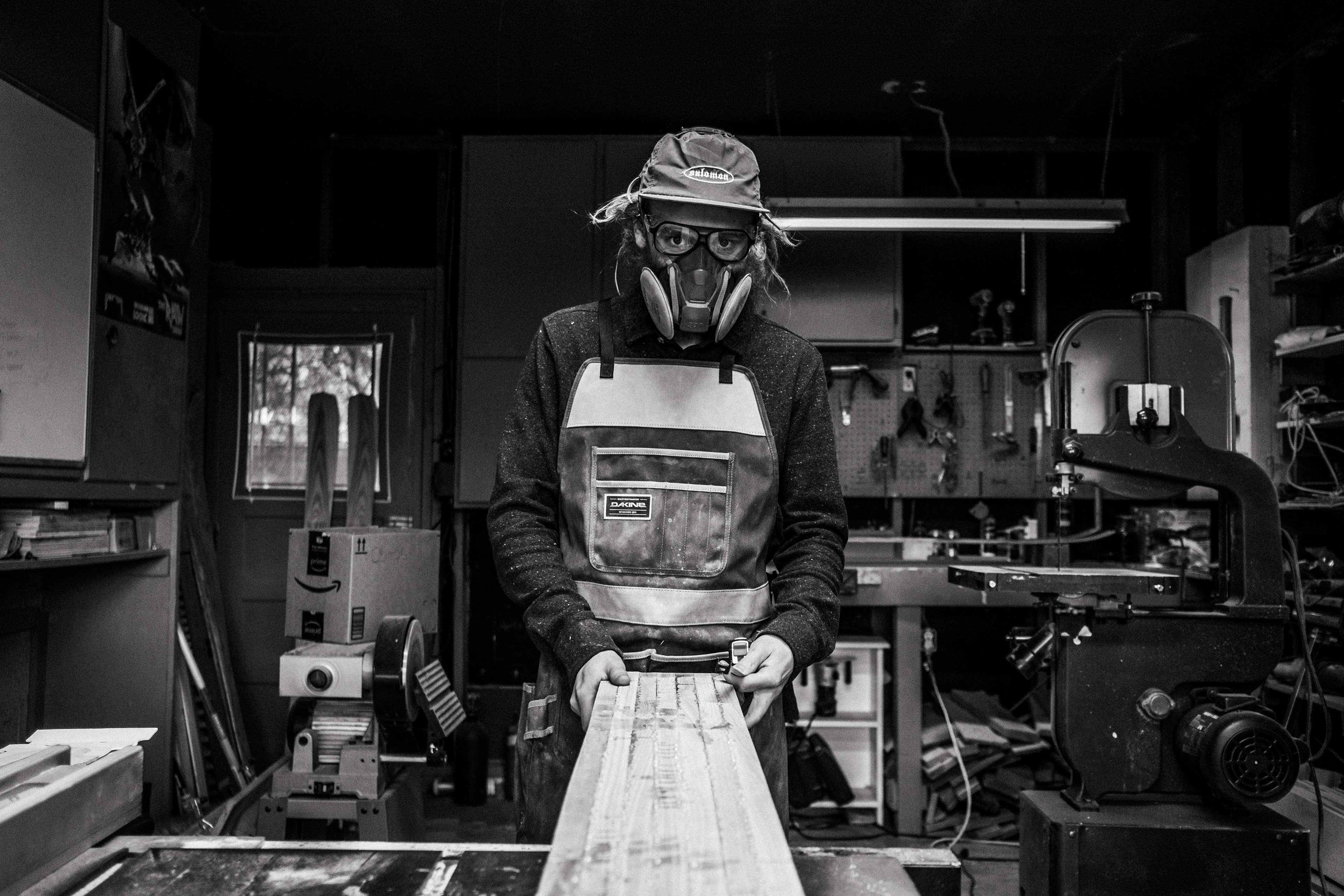
It’s evident when you first walk into their house that they are genuine artisans; handmade bikes and hand-laced bike wheels adorn the walls, while homemade boots and sandals are tucked away near their front door. Various painting and wood projects decorate the space elegantly. The skis they make too, adorn the walls of their living room.
Hailing from the Ogden section of the Wasatch, Caleb and Liz embody a sense of ease in their hard work; a common trait amongst those born and raised in the area. The word, “industrious” doesn’t quite capture the full essence of this trait, and it’s best described as people who jump head-first into either making something that doesn’t exist or making something the way that they want it to exist. They’re unburdened of the massive hurdles in their way to make things that don’t yet exist, and instead find joy in even the hardest parts of the process.


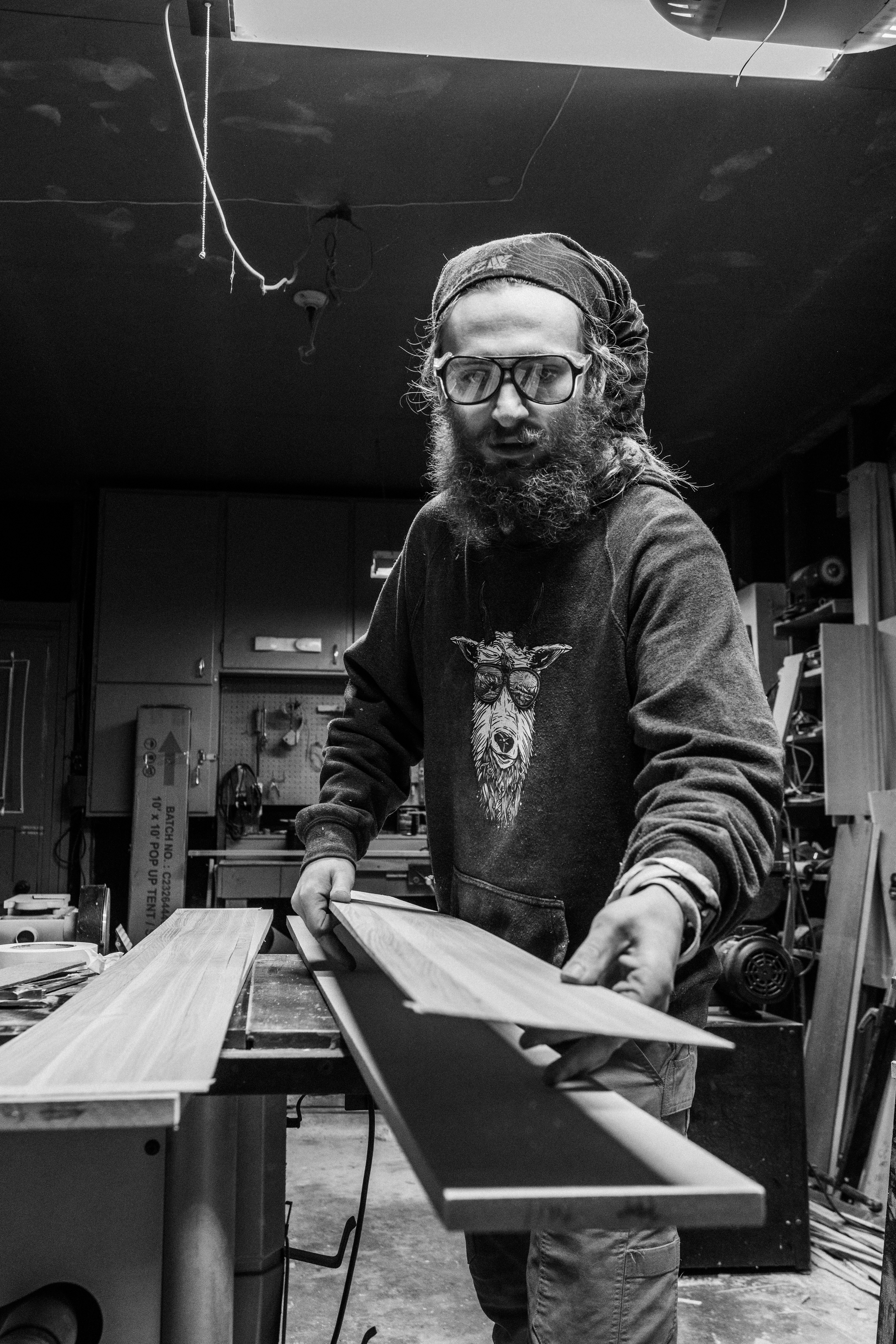
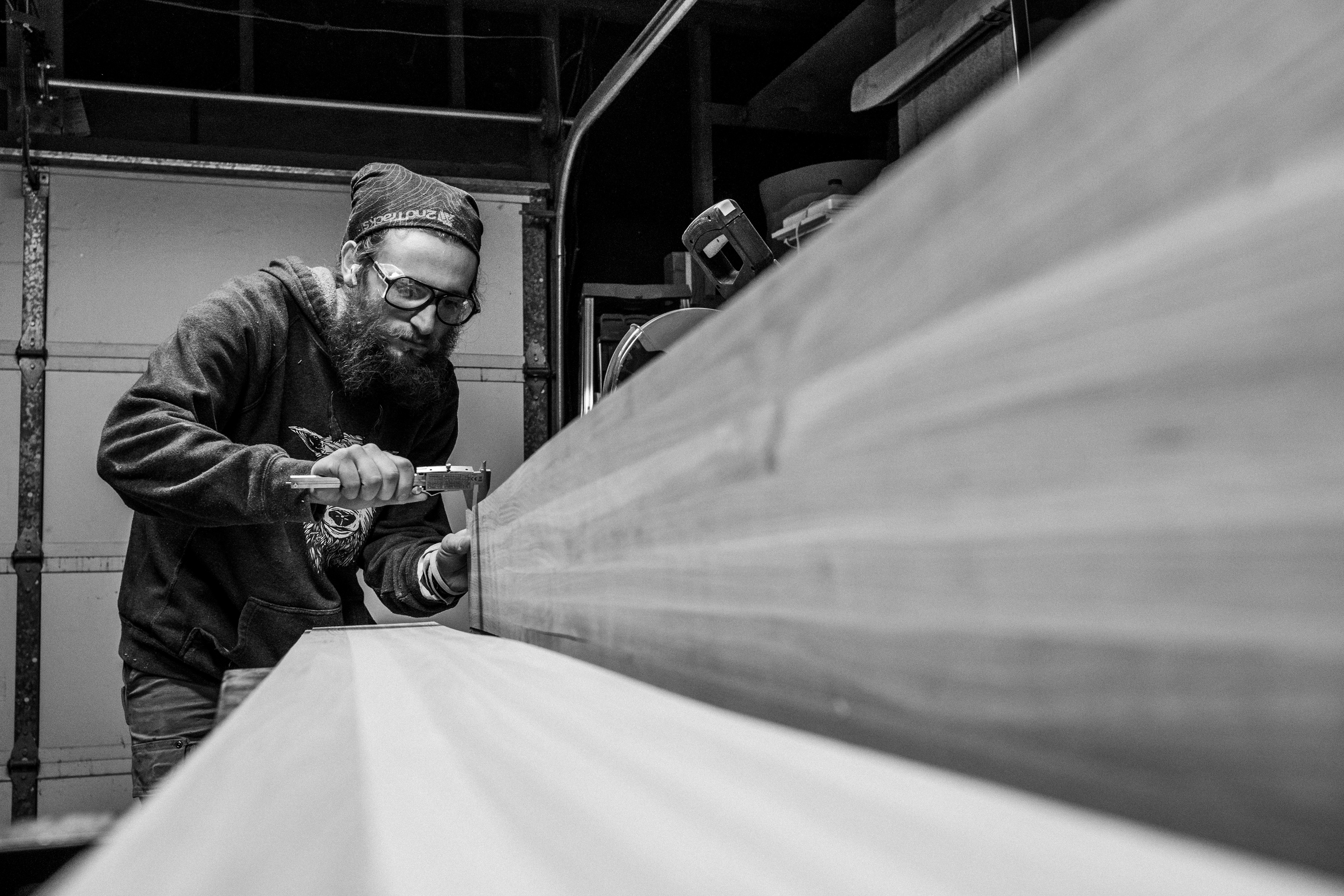
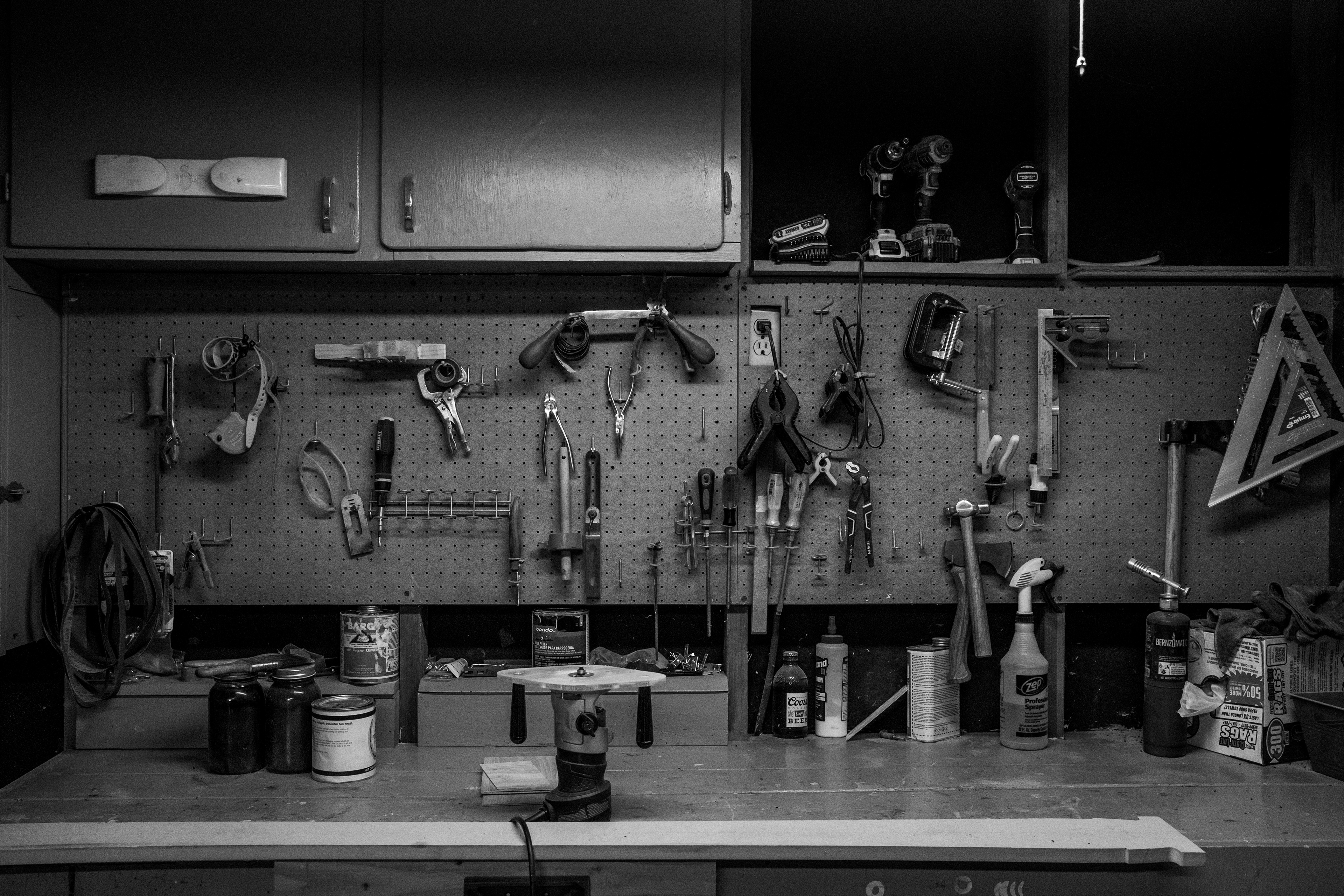
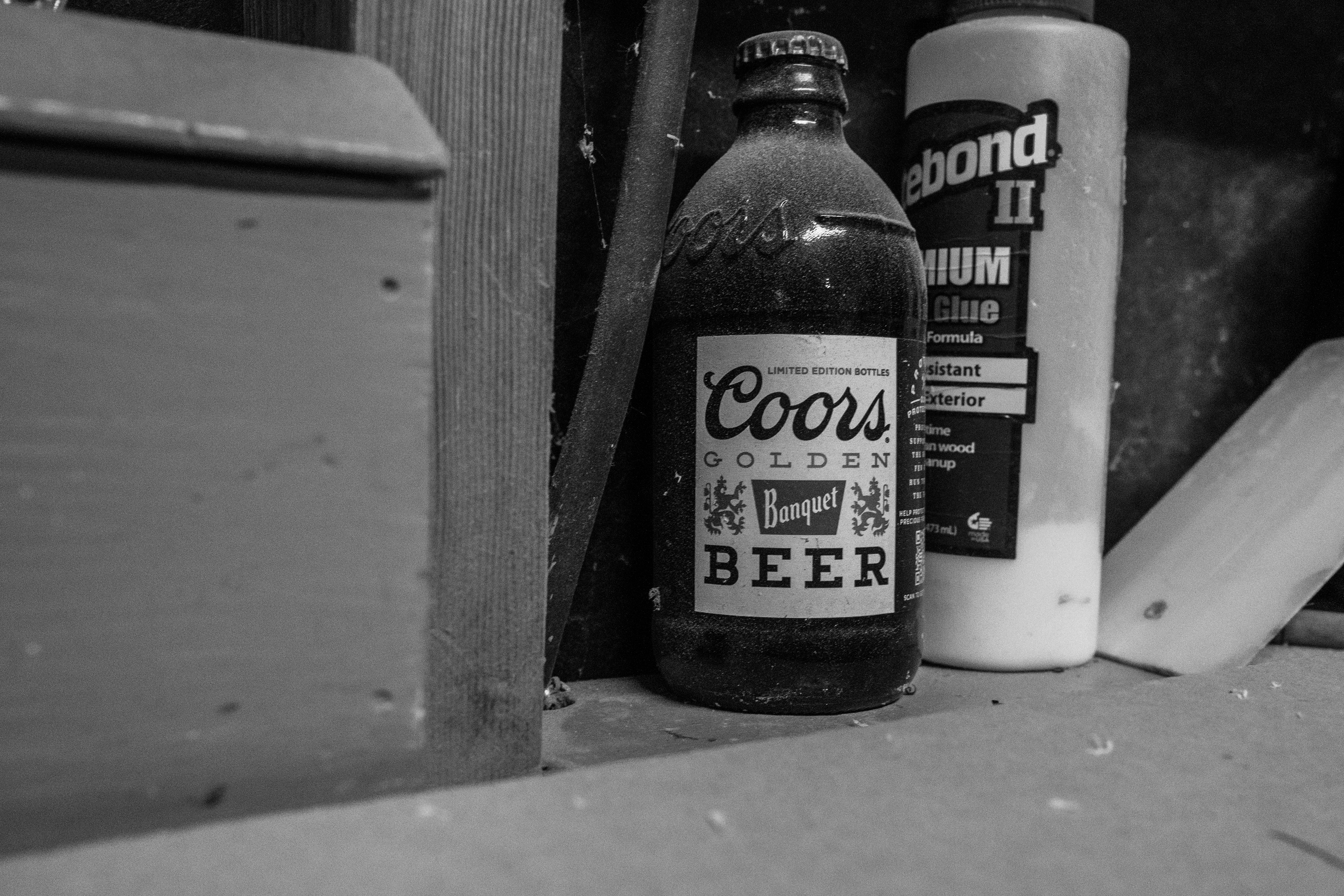
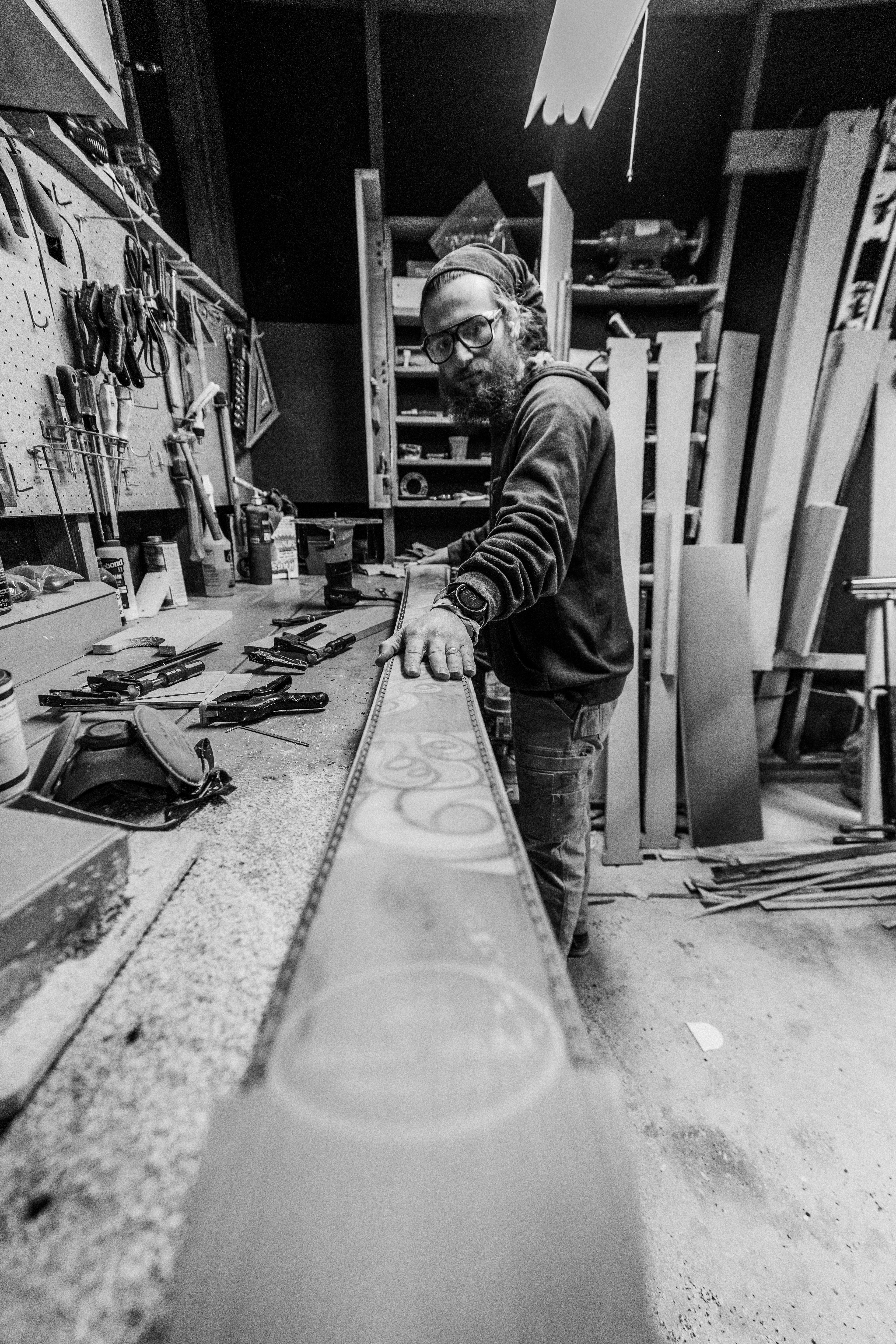
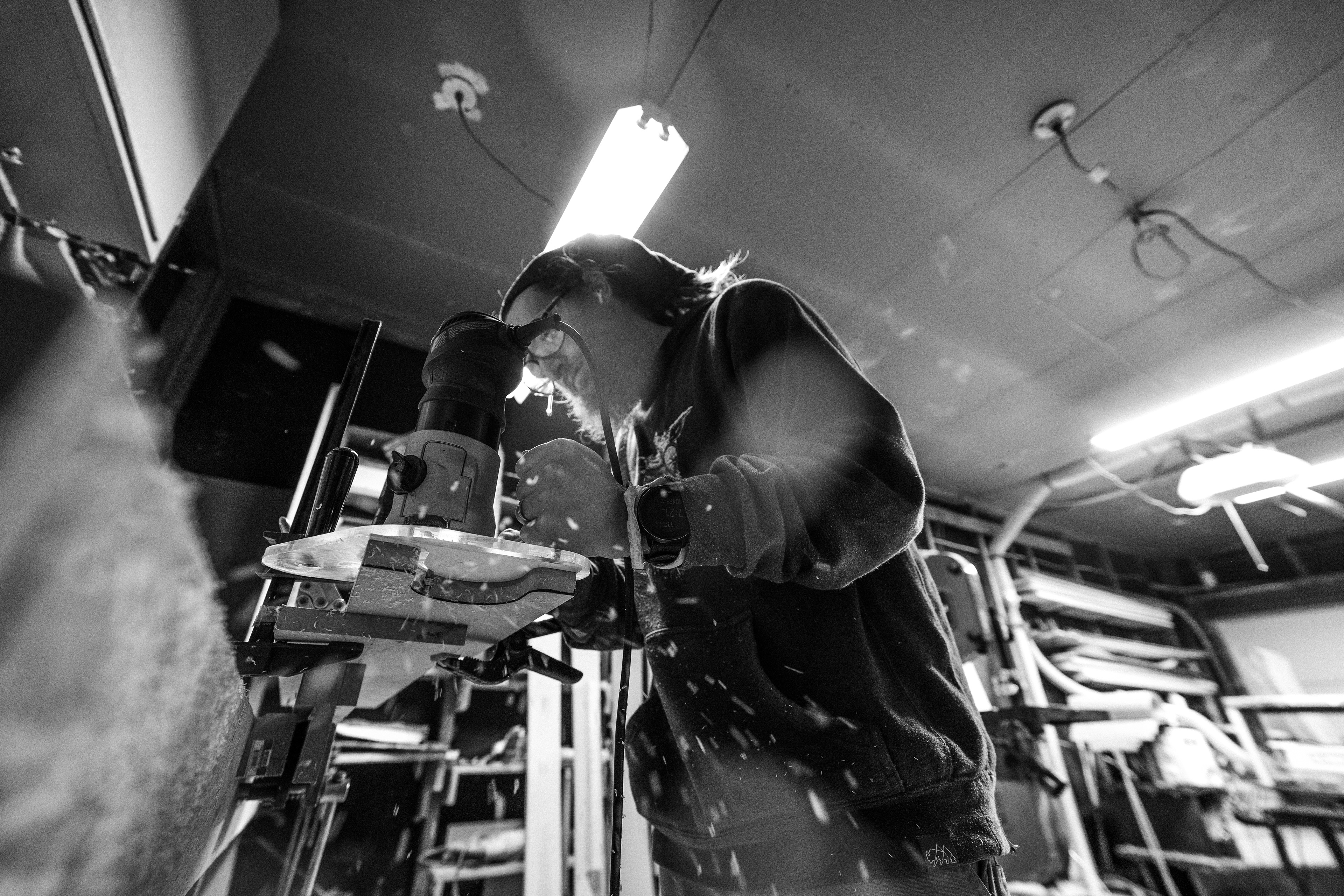
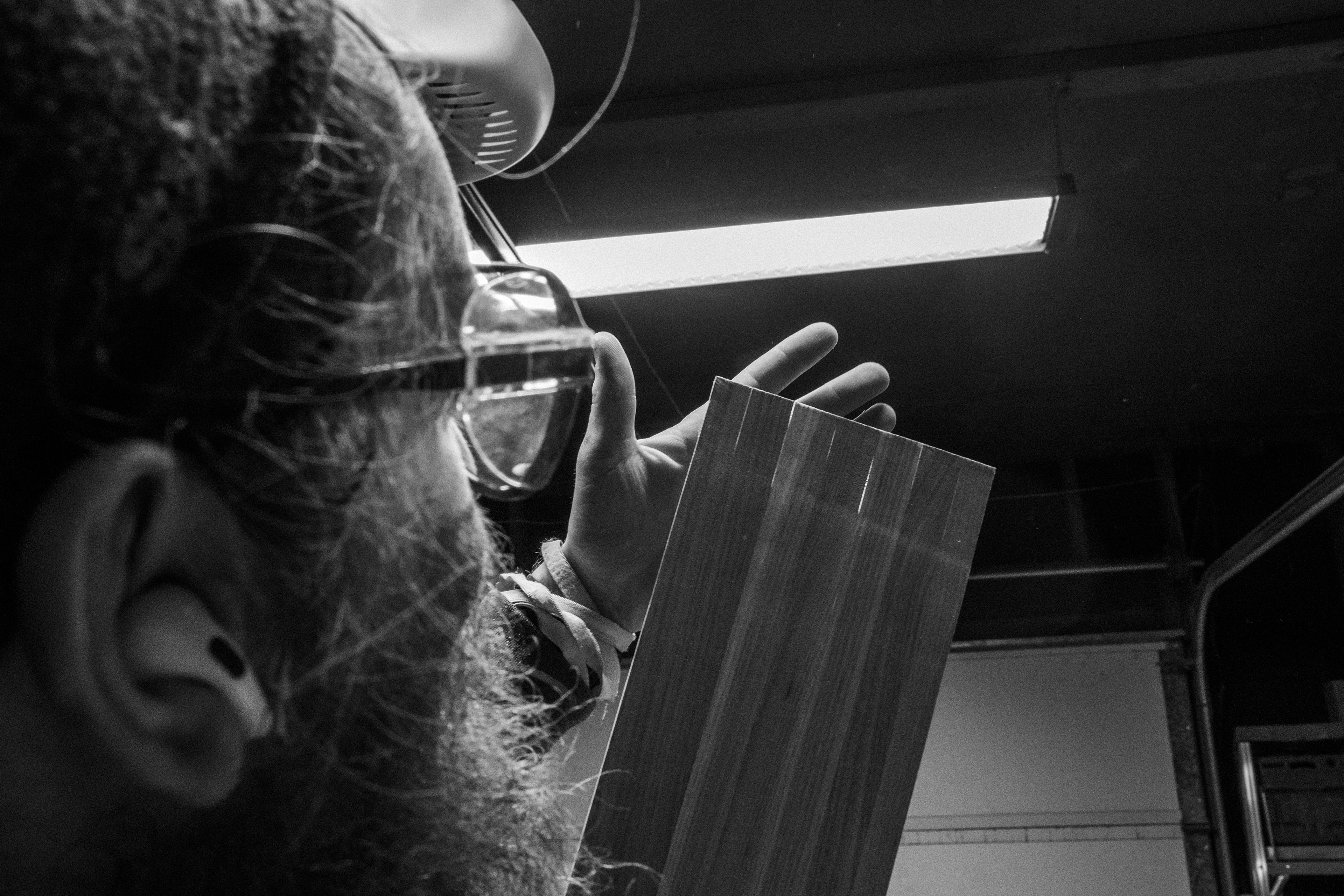
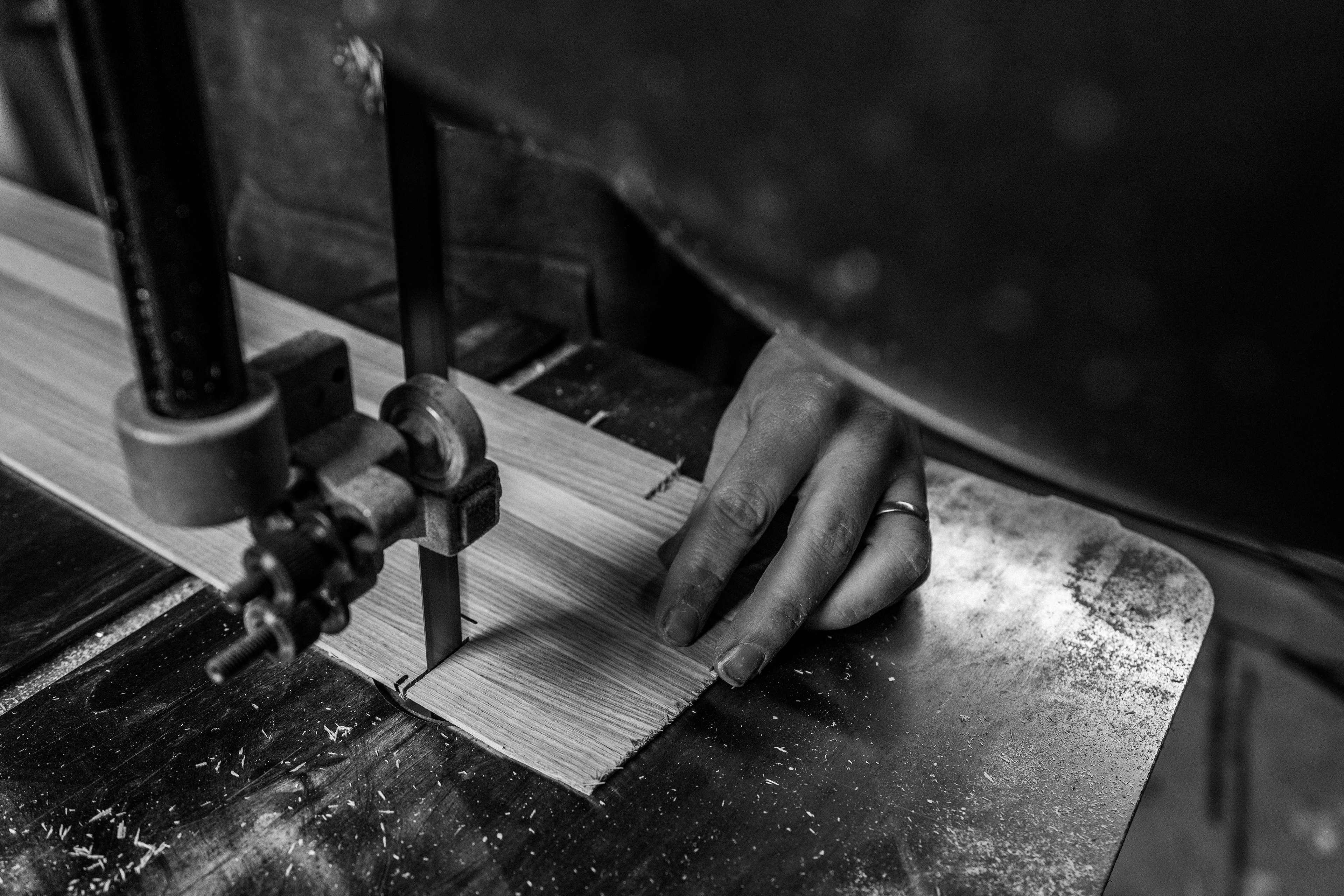
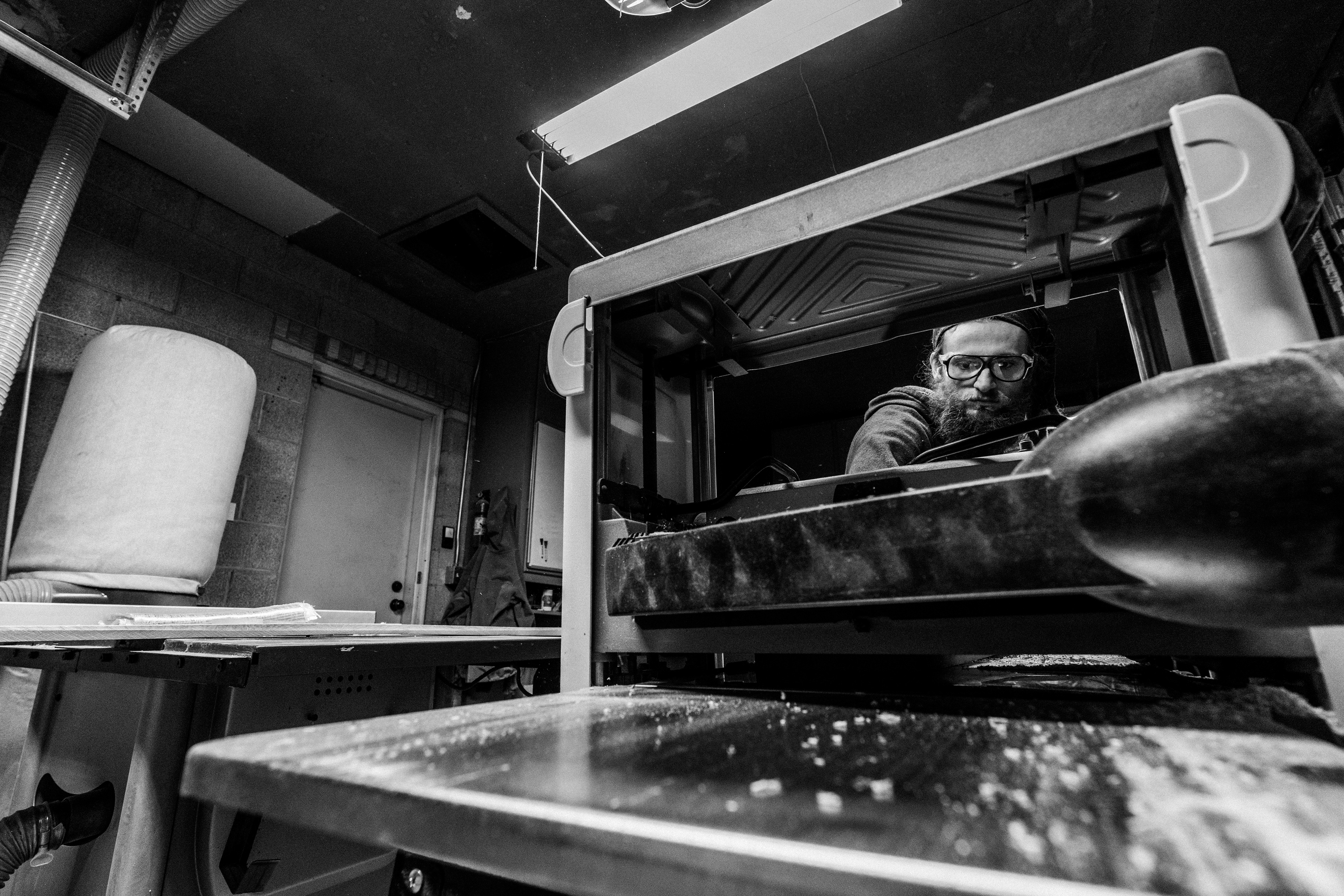

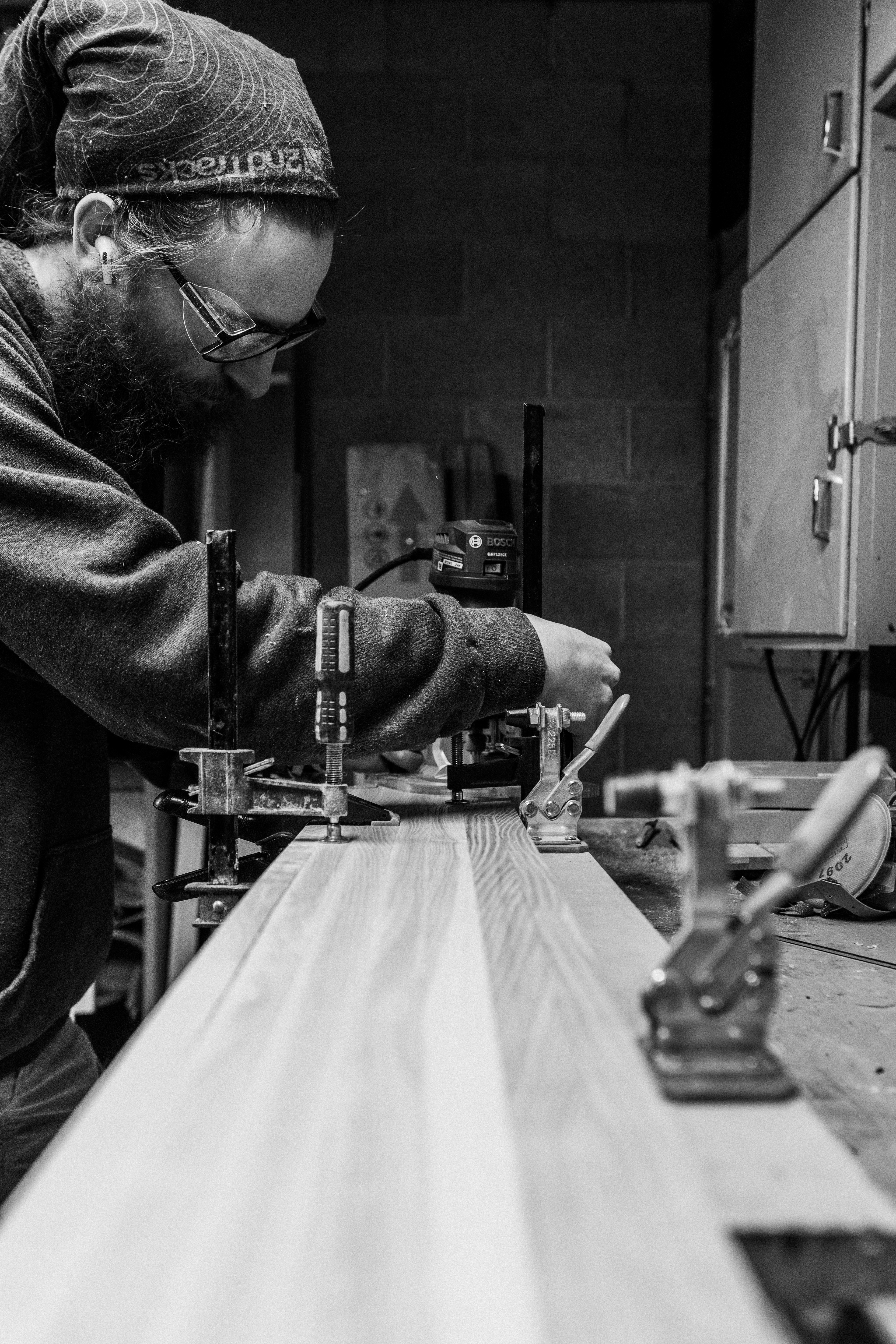

Caleb’s own engineering prowess transcends materials. He’s just as comfortable working with wood as he is metal or even more complex composites. Liz as well seems unencumbered by the processes and laughs recounting how she used to manually control the temperature and pressures of their old press for hours on end. They continue to joke as they reveal failed experiments of skis stiffer than a 2x4. A frustrated artist might have tossed these memories of mistakes or learning curve prototypes, but they cling to them as funny mementos and perhaps a token of the progress they’ve made. They’re both far more interested in making something right, rather than making it good enough. There’s a sense of pride in how tightly glued in their edges are, as well as the thickness and quality of the wood top-sheet they use. While this is a garage builder, it feels more elevated than that. The skis themselves present as nicely, or probably nicer, as any mass produced ski. You’re left so enamored by the final product that you gloss over the hard work they had to put into getting to that point. Caleb and Liz don’t seem to mind. In fact, they would rather you focus on the finished product and just simply go skiing.
Liz tells me, “I feel like the world would just be a happier place if everyone skied”, as she explains the name, “Happy Hippy Skis”. Their ethos is to produce not only a high quality product, but one that lasts.
By using a thicker than standard base and tougher top sheet, as well as collaborating with local vendors, they’ve created a ski that not only will last many seasons, but a ski that wears in, rather than wears out. The thick wood top-sheet allows a skier to put their own patina into the skis. “I really enjoy seeing skis that have a few seasons of use on them. They are unique, and the wood tells a story”, explains Caleb as he points to some well loved skis.
Their skis are not shaped to mimic any other brand or model. Instead they’re shaped from the artisans' own experiences. Liz’s family helped start one of Ogden’s oldest nordic ski facilities in the area, and she’s been in the backcountry since she was 18 months old. “My father exclusively skied old skis, and refused to buy anything new” she recounts. Caleb adds, “I really learned to ski from Liz and her father. The old school, used wood skis were all I knew.” He continues, “My own learning of how to ski went in parallel to learning how to make skis. I quickly figured out what I liked and didn’t like as my experiences and preferences grew while testing shapes and materials in real time with production”. A few winters working at a local ski shop helped accelerate this market analysis and product testing as Caleb was able to try a wider array of skis. “I still always went back to that classic wood ski feel," he admits while discussing ski geometry. “Take, for instance; the tip of the ski. There used to be a unique tip shape to each ski craftsman, and they could identify their skis by the special shape or engraving they put into the wood. My skis all have my specific shape, and I wanted to pay homage to ski craftsmen of old with that shape and feature” elaborates Caleb.
It’s clear from just holding the ski - this is not only art, but a performance product. It’s light, but feels durable at the same time, and every aspect of the ski is special. “First we just wanted to prove we could make skis the way we wanted to make them. Next, it was making sure we could make more than 20 at scale and be consistent. We’ve refined the process, and now we’re ready to grow” says Caleb. Research and development is a huge part of this endeavor as well. They collaborate with freeride athlete Wynter McBride, who uses her own kind of artistry by putting their skis into action in some of the more challenging big mountain terrain.
Handmade ski crafting is nearly a lost artform, and is not for the faint of heart. Liz and Caleb with Happy Hippy Skis clearly don’t give up. They revel in the hardship of the process and inspire others to use their own hands and resources to create something great. After spending an evening with them and seeing their art, I think I agree with them; ‘the world would be a better, and happier place, if everyone skied’.
